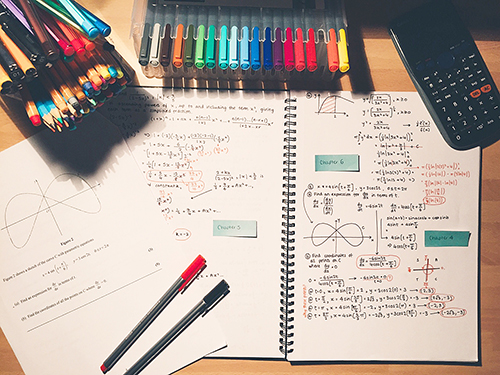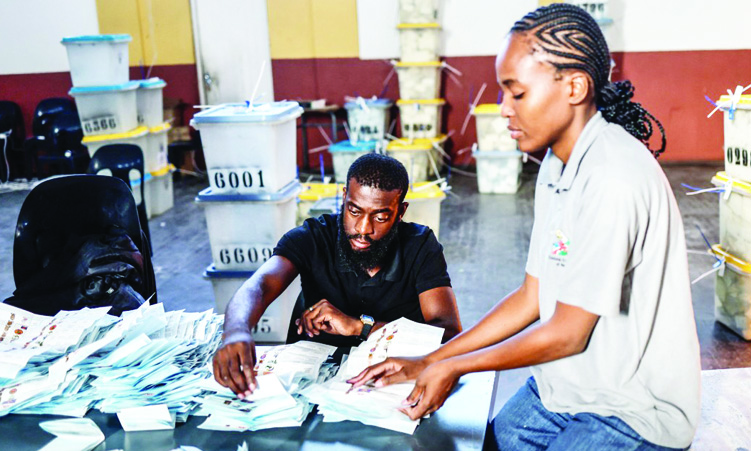Guess what? It ‘s that time of the year again. The time you ‘ve dreaded since the start of the year but could not avoid at any cost.
It ‘s the time when schools and universities are filled with stressed out teachers and students. Now is the time to pull up our socks, let go of the antics and focus on the end-of-year exams.
This is easier said than done, especially when we are faced with distractions like television, social media, friends and even family. Immense pressure is placed on the shoulders of students from parents and teachers. It ‘s tough, I know, but the reality is, education is very important and as cliche as it is, it ‘s the key to success.
To pass our exams with flying colours, there ‘s a seemingly horrible process we have to go through first: Studying.
George Turnbull, the exam doctor from Ofqual says “for most students, the hardest thing is getting started. It ‘s best to do about 10 minutes a night and build up to doing more revision later “. Studying doesn ‘t have to be all bad, we just need to prioritise and set up our study plan effectively.
Bernard Chunga, a Polytechnic of Namibia student, says he starts studying well in advance so he can have enough time to consult with lecturers if he encounters problems.That brings us to our first mistake: Only starting to go through our books shortly before the exams. This stresses us out and stress just makes the situation a thousand times worse. Studying begins months ahead of the time in the classroom. Listening and class participation comes very in handy when you start revising, because you generally understand the work better and produce better results.
“Mostly I don ‘t have problems studying, it ‘s just being lazy sometimes that ‘s a problem, like sometimes taking studying for granted,” Chunga said.
Another problem we face when studying is noise. If you live in a busy neighborhood close to shebeens or near a highway and it ‘s really hard to concentrate, a library might be the best place for you. At school, you could ask your teachers if there are any classrooms available after hours.
Once you ‘ve found you ‘re quiet place, get organised. Get all your stationery like pens, highlighters, calculators and all your books and papers ready before you sit down. You don ‘t want to have to get up constantly having to look for something.
Dr Val Brooks, a specialist in educational assessment from Warwick University ‘s Institute of Education, says parents should not stop their children from revising with a friend, if they are explaining concepts to one another, this can be one of the best ways to understand a complicated subject.
Prioritising your subjects is also a very a good idea. Have a plan of the subjects you ‘re going to tackle. Some people like to mix it up with the subjects and others take one on for hours on end. Get to know what works best for you. Your brain will get tired after a few hours and you might get hungry as well. Don ‘t be scared to take breaks, this will just help you refresh and be more productive.
Dr Brooks believes a 40-minute session followed by a 10-minute break and another session is a good way to start. During your break, instead of having Coke or Fanta and chips as a snack, rather have healthy foods, like fruit and water.
Out of all your distractions, your phone could just be the biggest culprit so switch it off, don ‘t put it on silent. Your phone is probably filled with a ton of apps and the temptation to check your WhatsApp, Instagram or Twitter might just overpower you.
Only keep your computer on if it ‘s helping you with research, not if you ‘re updating your Facebook status or watching videos on Youtube. It would be better to do research ahead of time and print out your notes. If there ‘s anything you have trouble
understanding, don ‘t hesitate to approach your teachers, lecturers and tutors, they would be more than happy to help you.
George Turnbull has a few tips for you when it comes to the big day. “A leisurely breakfast and a walk to school is a good start on any exam morning,” he says. “Avoid friends, they can be off-putting and may confuse your thoughts. Do not cram new information in the night before an exam,” he adds.
No matter how well prepared and determined you are, sometimes our brains just shut down. Don ‘t panic, it happens. “Choose your questions, starting with the ones you know you can do, to build confidence,” says Turnbull. “Do not spend too long on any one question and try to do the number required. Use the number of marks for each question as a guide and make sure you do the compulsory questions, if there are any.”
When the moment arrives when you feel like just throwing down your pen and walking out, don ‘t. Never let your problems discourage you. The reward you receive at the end will be worth it.
Improve Your Learning
• Underlining: The act of underlining something means you are engaging with certain key
aspects of the text. There is no need to go crazy and highlight entire blocks of text.
• Make Your Own Study Tips: Essentially, the aim of note-taking is to summarise lectures or
articles in your own words so you can easily remember the ideas.
• Mind Mapping: Mind Maps are an extremely versatile tools. They can be used for brainstorm
ing, outlining essays or study topics and for general exam preparation.
• Flashcards: Using Flashcards is a particularly effective method of learning when trying to as
• Case Studies: Case studies can help you visualise a theory and place it in a more familiar and
realistic context. This is especially useful in business or law subjects.
• Quizzes: Quizzes can show where your strengths and weaknesses are, so it allows you to focus
Stay informed with The Namibian – your source for credible journalism. Get in-depth reporting and opinions for
only N$85 a month. Invest in journalism, invest in democracy –
Subscribe Now!






